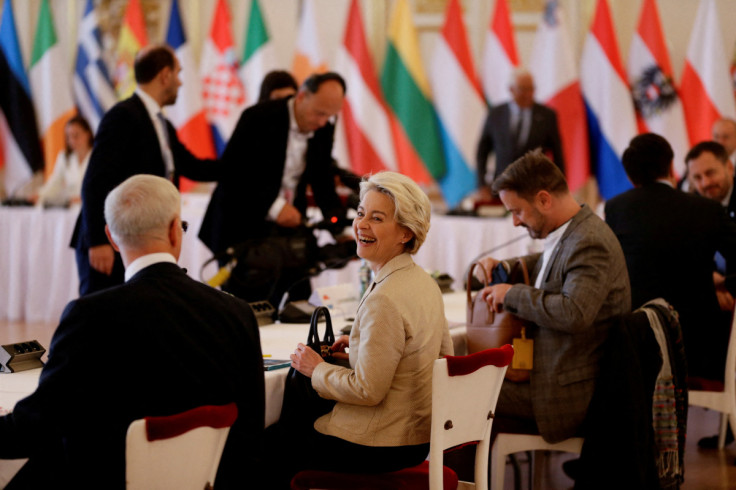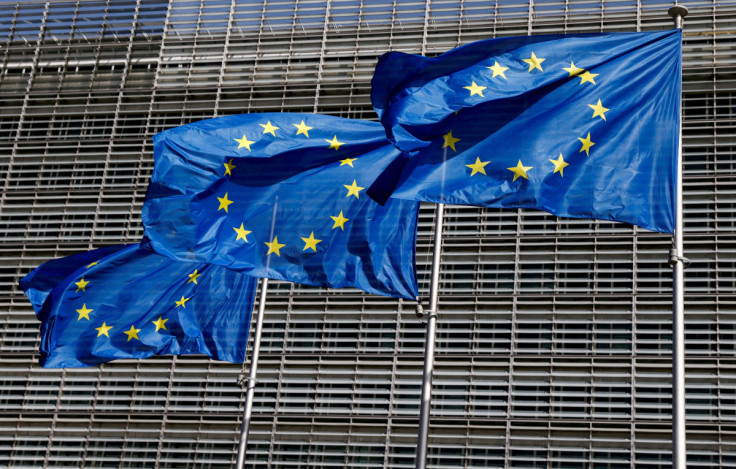EU seeks to break impasse over gas price caps, 'no regret' plan floated
The question of how, when and whether to cap gas prices is set to dominate another meeting of European Union countries on Wednesday, as they pursue a joint plan to target high gas prices - a compromise that has eluded them for weeks.

The question of how, when and whether to cap gas prices is set to dominate another meeting of European Union countries on Wednesday, as they pursue a joint plan to target high gas prices - a compromise that has eluded them for weeks.
The 27-country EU is plotting its next move to tame soaring energy prices and shield consumers from surging bills, as Europe heads into a winter of scarce Russian gas, a cost of living crisis and the looming threat of recession.
EU energy ministers meeting in Prague will attempt to provide clearer instructions on what the European Commission should propose as the bloc's next emergency energy measure.
"We're all agreed we do need to do something further. The exact mechanisms may take some time," Irish climate minister Eamon Ryan said on his arrival to the meeting.
EU energy commissioner Kadri Simson said Brussels would propose fresh measures next week, and any further EU-wide measures should be backed by "broad consensus" among countries.
So far, that has been hard to find.
With gas prices almost 90% higher than a year ago, most EU countries say they want a gas price cap, but disagree on its design.
Talks among EU leaders last week on the issue did little to clarify the issue. Those discussions "went in all directions", one EU diplomat said - referring to the numerous options being floated, including a price cap on all gas, pipeline gas, or just gas used to produce electricity.
"We need to decouple energy prices - gas prices from electricity prices," Swedish energy minister Khashayar Farmanbar said, pointing to Spain and Portugal's national scheme to cap the price of gas used for power generation as one option.
Both countries implemented that scheme in June, which helped curb local power prices. A senior EU official said support was building among members to roll it out EU-wide - although some warn it could raise gas demand across the bloc, since Spain's gas use increased under the measure.
Some countries, including Germany, Europe's biggest gas consumer, oppose a broad gas price cap, fearing it would leave Europe struggling to attract supplies from price-competitive global markets this winter.
Germany and the Netherlands put forward their own proposals ahead of Wednesday's meeting - suggesting 10 "no-regret" EU measures, including a new benchmark price for liquefied natural gas, tougher gas-saving targets, and negotiating lower prices with other suppliers, such as Norway.
"Negotiations with our partners to look for mutually beneficial partnerships are much preferred to a cap on gas import prices," they said in a document seen by Reuters.
Norway's energy minister Terje Aasland, who joined Wednesday's meeting along with other European non-EU members, said his country "doesn't recommend" a gas price cap.
EU countries have already rushed through emergency energy windfall profit levies, gas storage filling obligations, and electricity demand curbs to address the surge in energy prices driven by Russia slashing gas supplies since it invaded Ukraine.
But the pressure to agree more EU-wide measures has increased after Germany said it would spend up to 200 billion euros to shield its consumers and businesses from high energy costs - prompting a backlash from some countries about the uneven rollout of national support.



Copyright Thomson Reuters. All rights reserved.



















